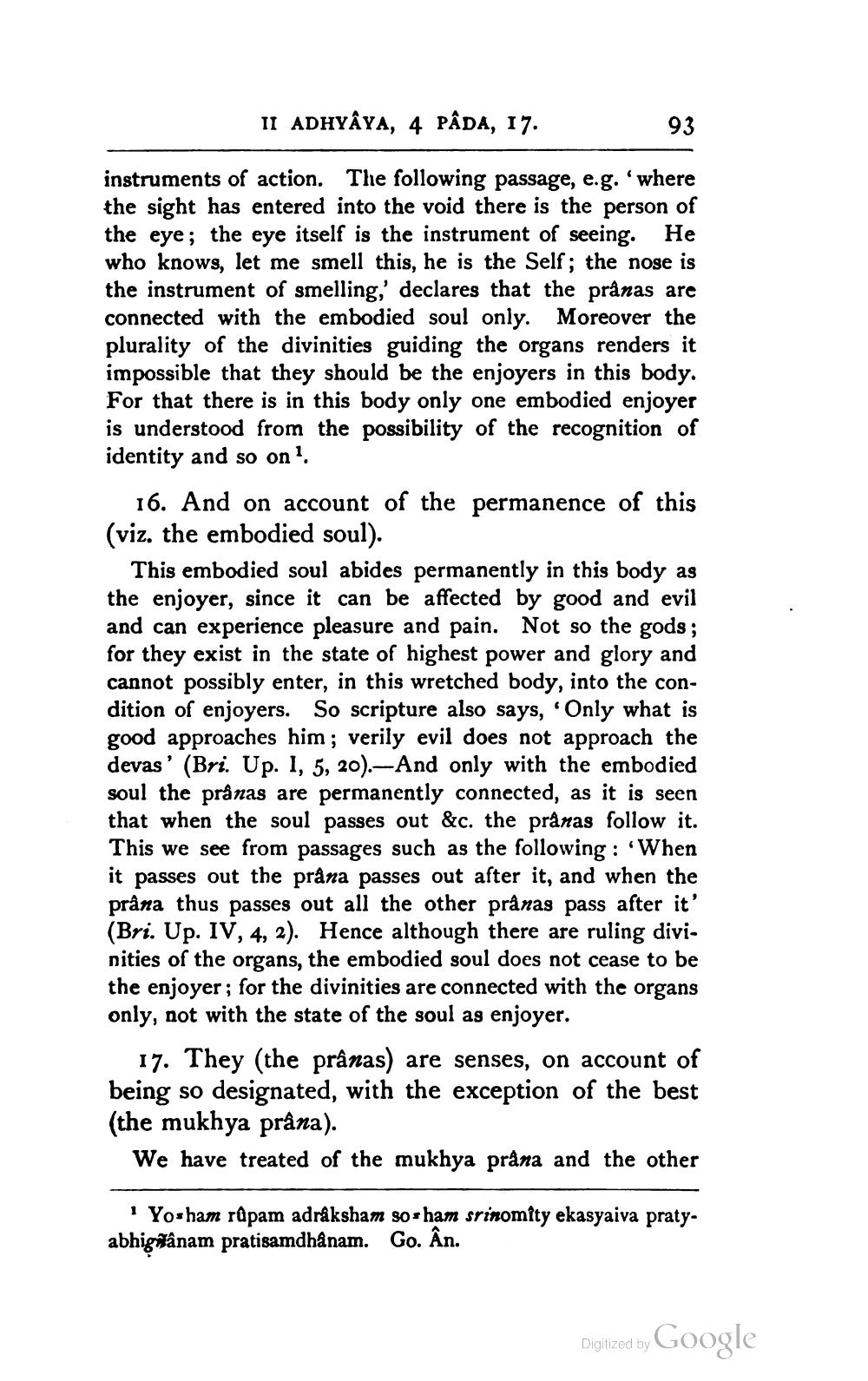________________
II ADHYAYA, 4 PÂDA, 17.
93
instruments of action. The following passage, e.g. 'where the sight has entered into the void there is the person of the eye; the eye itself is the instrument of seeing. He who knows, let me smell this, he is the Self; the nose is the instrument of smelling,' declares that the pranas are connected with the embodied soul only. Moreover the plurality of the divinities guiding the organs renders it impossible that they should be the enjoyers in this body. For that there is in this body only one embodied enjoyer is understood from the possibility of the recognition of identity and so on.
16. And on account of the permanence of this (viz. the embodied soul).
This embodied soul abides permanently in this body as the enjoyer, since it can be affected by good and evil and can experience pleasure and pain. Not so the gods ; for they exist in the state of highest power and glory and cannot possibly enter, in this wretched body, into the condition of enjoyers. So scripture also says, 'Only what is good approaches him; verily evil does not approach the devas' (Bri. Up. I, 5, 20).–And only with the embodied soul the pränas are permanently connected, as it is seen that when the soul passes out &c. the pränas follow it. This we see from passages such as the following: When it passes out the prâna passes out after it, and when the prâna thus passes out all the other pränas pass after it' (Bri. Up. IV, 4, 2). Hence although there are ruling divinities of the organs, the embodied soul does not cease to be the enjoyer; for the divinities are connected with the organs only, not with the state of the soul as enjoyer.
17. They (the prânas) are senses, on account of being so designated, with the exception of the best (the mukhya prâna).
We have treated of the mukhya prana and the other
· Yosham rūpam adråksham so s ham srinomîty ekasyaiva pratyabhighầnam pratisamdhanam. Go. Ân.
Digitized by
Digilzed by Google




